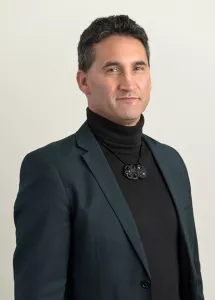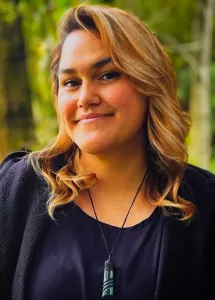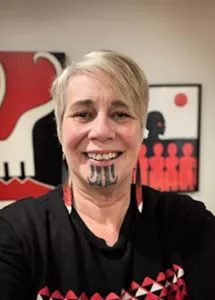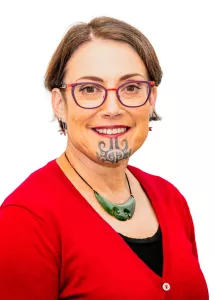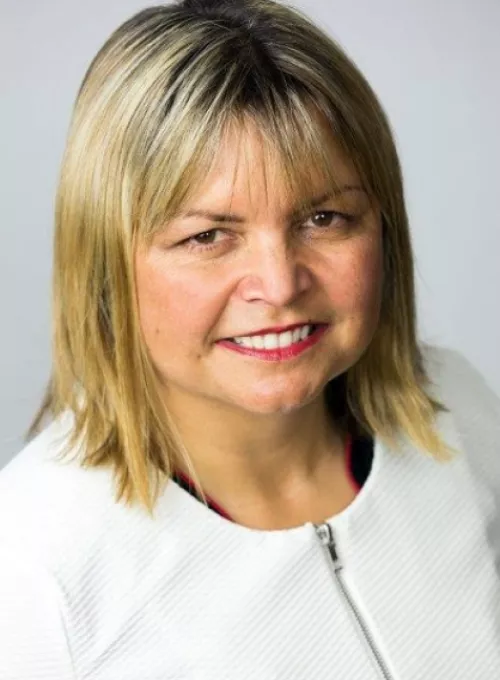
He toka tūmoana he ākinga nā ngā tai
A standing rock in the sea, lashed by the tides (Kawharu, 2008)
Dr Dianne Wepa is a distinguished figure in Māori health, whose quiet yet impactful leadership has significantly advanced the interaction between the healthcare system, its workforce, and Māori whānau. Her contributions have profoundly influenced both the delivery of healthcare services and the body of knowledge surrounding Māori and whānau experiences within these systems.
As a registered Social Worker, Dianne has dedicated many years to Māori mental health and, more recently, to broader Māori health initiatives. She holds the position of Associate Professor in Māori Health at AUT and has served in key roles such as Māori Workforce Coordinator and Family Therapist. Dianne’s governance contributions include membership on the Social Worker’s Registration Board, the Nursing Council of New Zealand, and the National Animal Ethics Committee.
Dianne’s research has led to meaningful improvements in nursing education, influencing curricular delivery in Aotearoa and informing nursing programmes in Canada and Australia. Her Master of Philosophy thesis with Massey University explored the experiences of cultural safety educators and laid the foundation for her editorial work on two pivotal books.
Her scholarly contributions include editing Cultural Safety in Aotearoa New Zealand (now in its third edition) and Clinical Supervision in Aotearoa/New Zealand: A Health Perspective. These works have become required texts in nursing and midwifery in New Zealand, exemplifying her ability to unite diverse voices and expertise to produce invaluable tools for practitioners.
Dianne’s 2016 Doctorate doctoral research in Health Sciences with AUT used grounded theory to focus on Māori whānau, culminating in the 2019 publication with her doctoral supervisor Dr Denise Wilson, Struggling To Be Involved: An interprofessional approach to examine Māori whānau engagement with healthcare services, (Full text link), This widely recognised work, offers valuable insights for healthcare providers on how to engage effectively with Māori whānau to improve healthcare outcomes for unwell family members.
Dianne’s recent publications reflect her commitment to addressing contemporary challenges, focusing on a Te Tiriti o Waitangi informed approach to cultural safety for research; reconnecting Māori in a post-COVID world, and co-designing digital health tools for suicide prevention.
Dr Dianne Wepa’s leadership and scholarship continue to serve as a beacon for improving the healthcare system’s engagement with Māori, ensuring that whānau are not only involved but empowered within their healthcare journeys. Her work exemplifies the spirit of kaupapa Māori development and enduring commitment to social justice.
Links:
Associate Professor Dianne Wepa - AUT
Community Research - Dianne Wepa
Taupua Waiora Research Centre – Dianne Wepa
Research Gate Profile- Dianne Wepa – includes links to full publications
Emerald Publishing video: World Social Work Day, with Dianne Wepa
Charles Darwin University You Tuble video: Wellbeing, resilience and peer support
Charles Darwin University You Tube video - Cultural Safety and we-dentity with first nations peoples
Professor Denise Wilson
Updated 16 December 2024
